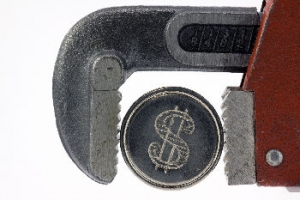 Last week Chuck Balcher (see his blog), on LinkedIn, offered this question to sales professionals.
Last week Chuck Balcher (see his blog), on LinkedIn, offered this question to sales professionals.
“What’s it worth? “When selling your product or service, what is it worth to the person you are trying to sell it to?”
Years ago, Ron Willingham, author of Integrity Selling and a mentor of mine, said that there were 4 Dominant Buying Motives: (1) Pride; (2) Pleasure; (3) Peace; and (4) Profit. Ron defined a prospect’s motive behind buying any product or service as one of these four or sometimes a combination.
So, applied to product worth what does this mean? When selling a product or service, the worth to a person is relative to the positive impact received from one or more of the Dominant Buying Motives. For example, product worth might be a profit of ‘x’ amount of dollars – an ROI. It might be the pride of wearing a piece of clothing or the peace of mind that comes from an automotive service. It might be the sheer pleasure of resting in a hot tube or pride in owning a particular kind of automobile.
Whatever the dominant buying motive, all of these desires stem from the current situation. The prospect’s situation includes needs, wants, or problems, and the desire to fulfill them or fix them.
This brings us to the salesperson. How does the salesperson add or detract from a product’s value or worth? Hmmm. Let us count the ways. A low ‘value’ salesperson doesn’t …
1. Adapt to a person’s personality and listen to them.
2. Discover the person(s) needs, wants, or problems.
3. Customize solutions or show how they help customers.
4. Solve remaining fears or concerns.
5. Follow up to see if the customer is satisfied.
(There are also underlying character traits of honesty, being on time, fulfilling commitments, following-through, etc. These translate into behaviors that affect worth as well.)
Many ask these days, “What’s the worth of a salesperson. Will the internet replace them.” I continue to say, “No – not unless they replace themselves by unworthy behavior; and, thus, they become ‘worthless.’
A product or service is ultimately worth the return a customer receives that outweighs the cost – a need fulfilled, a want satisfied, a problem solved … all for a small investment compared to what is received. Its value equals the perception of worth in the customer’s eyes. And, that describes the end-result of sales – an exchange of value.
You can increase the worth of your product or service. Make it better. Make yourself better. Make your salespeople better, or recruit better ones. You can do this. Do it. Lance.
